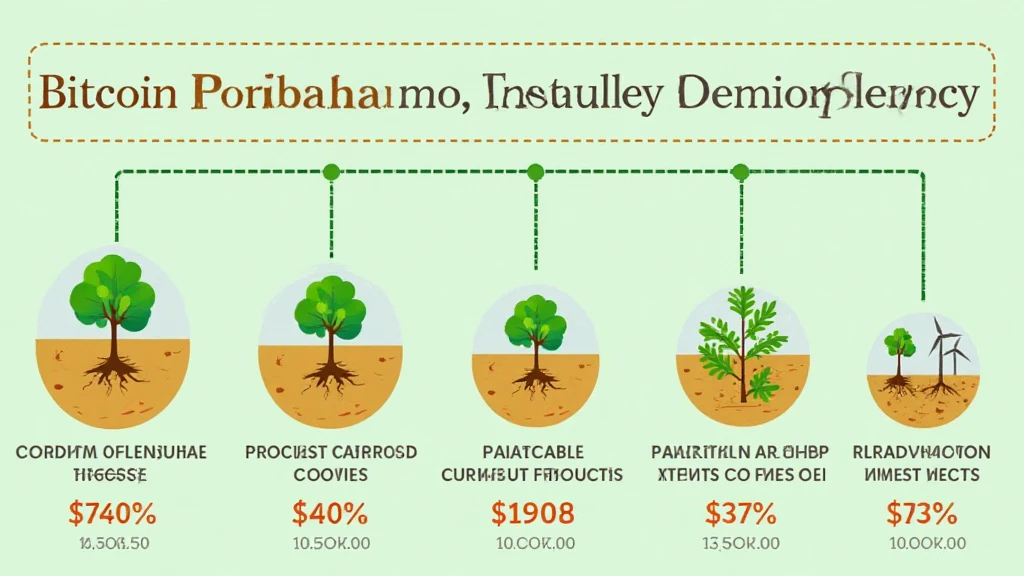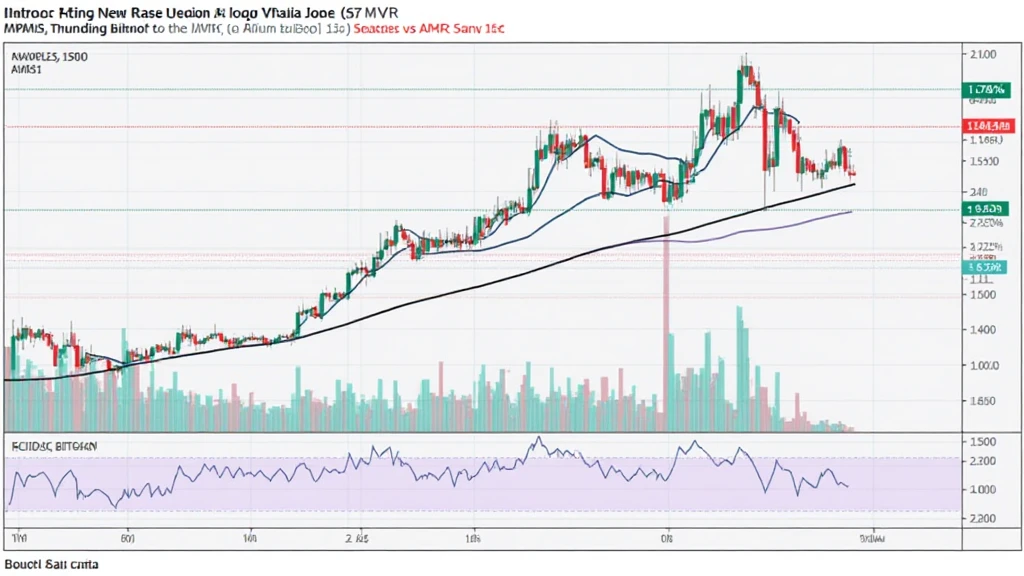Introduction: The Growing Concern of Bitcoin’s Carbon Footprint
As the digital currency landscape continues to expand, environmental concerns surrounding Bitcoin are becoming increasingly prominent. With over 0.5% of the global energy consumption attributed to Bitcoin mining, the detrimental impact on our planet is hard to ignore. In 2024 alone, it was reported that blockchain networks consumed enough energy to power nearly 60 million households worldwide. This has driven a significant demand for Bitcoin carbon offset programs to mitigate these environmental impacts.
In this article, we will delve into the concept of Bitcoin carbon offset programs, examining their benefits, challenges, and contributions to sustainable cryptocurrency practices. By understanding how these programs work, readers can better appreciate the balance between blockchain technology and environmental stewardship.
What are Bitcoin Carbon Offset Programs?
Bitcoin carbon offset programs are initiatives aimed at neutralizing the carbon emissions generated through Bitcoin mining and transaction processes. These programs typically fund projects that reduce greenhouse gas emissions, such as reforestation, renewable energy projects, or energy efficiency improvements. By purchasing carbon credits equivalent to the emissions produced, miners and investors can effectively offset their carbon footprint.

- Carbon credits: These are permits that allow the holder to emit a certain amount of carbon dioxide or other greenhouse gases. One credit typically represents one metric ton of carbon dioxide.
- Reforestation projects: Initiatives that involve planting trees to absorb carbon dioxide from the atmosphere, thereby offsetting emissions.
- Renewable energy projects: Investments in solar, wind, and other clean energy technologies that reduce reliance on fossil fuels.
- Energy efficiency improvements: Funding projects that enhance energy use efficiency in buildings and industries, thereby lowering overall emissions.
The Importance of Carbon Offsetting in Cryptocurrency
As the adoption of cryptocurrencies continues to rise, so does the need for environmentally responsible practices within the industry. The effects of climate change are undeniable, and the energy-intensive nature of Bitcoin mining exacerbates this issue. In regions where fossil fuels are the primary energy source for mining operations, the carbon emissions generated can be significant.
Implementing carbon-offset strategies can help:
- Enhance the industry’s reputation: As public awareness of climate change grows, companies that actively engage in sustainability initiatives are more likely to attract environmentally conscious investors and customers.
- Mitigate regulatory risks: Governments worldwide are imposing stricter regulations on carbon emissions. Companies investing in offset programs may benefit from increased compliance and reduced legal risks.
- Attract more users: According to a 2023 survey, 72% of crypto users in Vietnam expressed interest in investing with brands that prioritize sustainability efforts.
How Bitcoin Carbon Offset Programs Work
To understand how these carbon offset programs function, let’s break it down step by step:
- Calculating the Carbon Footprint: Miners and participants first estimate their carbon emissions. This estimation may involve determining the energy consumption of mining operations and the source of electricity used.
- Purchasing Carbon Credits: Based on the estimated emissions, Bitcoin miners purchase carbon credits from verified offset programs. Each credit corresponds to a specific emission reduction project.
- Funding Sustainable Projects: The funds generated from the sale of carbon credits are directed toward projects like renewable energy installations, tree planting, and sustainable agriculture.
- Verification and Auditing: Reputable carbon offset programs undergo strict verification processes to ensure that the claimed reductions are legitimate and impactful.
Benefits of Engaging with Carbon Offset Programs
Engaging with Bitcoin carbon offset programs presents several advantages for miners and businesses in the crypto space:
- Improved Sustainability: Investing in carbon offset initiatives helps improve the sustainability of the cryptocurrency industry.
- Social Responsibility: Participants demonstrate a commitment to social responsibility and contribute to positive environmental outcomes.
- Market Competitiveness: As the focus on sustainability grows, crypto companies involved in carbon offsetting may gain a competitive edge.
- Enhanced Institutional Trust: Institutional investors often favor companies demonstrating accountability and ethical practices, which can be attained through offset programs.
Challenges Facing Bitcoin Carbon Offset Programs
Despite their potential benefits, there are challenges that Bitcoin carbon offset programs face:
- Credibility Issues: Not all carbon offset programs are created equal. Some may lack proper verification, leading to questions about the authenticity of emissions reductions.
- Market Saturation: As the demand for carbon credits grows, the market may become saturated, leading to inflated prices and reduced overall impact.
- Underfunded Initiatives: Many projects in developing nations suffer from a lack of funding, limiting their ability to implement widespread change.
The Future of Bitcoin Carbon Offsetting
The future appears bright for Bitcoin carbon offset programs, especially as global awareness of climate change continues to rise. Emerging technologies like blockchain can improve transparency and accountability within offset projects, further solidifying their credibility. With an increasing number of Bitcoin miners and investors showing interest in sustainability, the competition in the carbon offset market will likely intensify, resulting in more innovative and effective solutions.
Conclusion: A Necessary Step Towards Crypto Sustainability
With Bitcoin’s carbon footprint under scrutiny, carbon offset programs offer a viable path toward achieving sustainability in the cryptocurrency realm. Through thoughtful investments in environmental projects, miners can not only enhance their brand image but also contribute to crucial global efforts against climate change.
As the cryptocurrency market continues to evolve, programs that emphasize sustainability will play a vital role in shaping the industry’s future. For those involved in the space, engaging with such initiatives can yield not only environmental benefits but also business advantages in an increasingly eco-conscious market.
At mycryptodictionary, we are committed to promoting sustainable practices within the cryptocurrency ecosystem. Together, we can usher in a new era of responsible digital currency usage, ensuring that the growth of Bitcoin includes a commitment to preserving the planet for future generations.
About the Author
Dr. Paul Lim is a renowned expert in blockchain technology and environmental sustainability, having published over 20 papers in the field. He is also a lead auditor on several prominent carbon offset programs, focusing on combining technological advancement with ecological balance.





